IUPS Teaching Workshops
Post-Congress Teaching Workshop – 8th South Asian Association of Physiologists and 35th Anniversary Annual Academic Sessions of the Physiological Society of Sri Lanka.
The “Online Assessments for Learning and Evaluating Pre-Clinical Sciences” conference was jointly organized by Physiological Society of Sri Lanka and Centre for Medical Education (CenMED), National University of Singapore. It was conducted at the Faculty of Medicine, University of Colombo, Sri Lanka on 19th November 2022. This was conducted as a hybrid workshop, with resource persons joining from Singapore, United States and Sri Lanka. The 72 workshop participants were from the South Asian countries, Sri Lanka, India, Pakistan, Bangladesh and Nepal. The workshop (supported by IUPS) was offered free to participants, which enabled participants with limited resources to make the best use of the valuable workshop. The interactive workshop shared the best evidence-based practices and the National University of Singapore’s journey in the use of technology to incorporate online assessment for their undergraduate programs, with the speakers focusing on the formats available, their strengths, and their limitations especially when one uses these in different settings. The workshop then focused on the regional barriers to implementing online assessments, with discussion of approaches to overcome the barriers.
IUPS 2022: Teaching workshops
The education committee of IUPS, (chair Robert Caroll) offered two IUPS & ADInstruments 2022 Teaching workshops at IUPS 2022. Both workshops brought leading thinkers of Physiology Teaching together and featured a mix of plenary talks with small group activities that capture current educational issues related to the teaching and learning of physiology.
The workshops were held online to expand participation opportunities. While English was the language of the workshops, all sessions had English/Chinese translation. The March 26 workshop before the main IUPS congress addressed “Physiology Teaching Pedagogies and Technology in Practicum”, and the May 12-13 workshop immediately following the main IUPS Congress addressed “Successful Strategies for Teaching Post-COVID
The IUPS sponsors national and regional teaching workshops that enhance the knowledge and skills of faculty who teach physiology. The flagship event is an international workshop which is held every 4 years as a satellite to the IUPS Congress. During the years between the IUPS Congress, smaller workshops around the globe address regional teaching needs. These activities range from workshops embedded within a conference program to stand-alone workshops of a 1 to 3-day duration. Meeting Reports are regularly published in Advances in Physiology Education, providing insights into current topics of educational interest.
For example see: Chandran et al., Physiology without borders: report on physiology education workshops in India-IUPS Initiatives (2018-2019). Adv Physiol Educ.44(3):309-313, 2020. doi:10.1152/advan.00050.2020)
Chandran et al. IUPS Physiology Education Workshop series in India: organizational mechanics, outcomes, and lessons. Adv Physiol Educ 44: 709–721, 2020; doi:10.1152/advan.00128.2020.
Teaching Workshops Promote Faculty Professional Development
Teaching workshops emphasize the hands-on development of expertise in learner-centered educational methods. Workshops are most commonly structured as a series of experiential activities and a limited number of plenaries. Facilitators are a mix of local and international experts who provide feedback to participants as they develop and practice facilitation skills.
The IUPS approach is to “Teach the teacher”, providing participants with knowledge and materials to share with their colleagues when they return to their home institution. This way the impact of the workshops is multiplied, and the physiologists become a valuable local resource. In addition, the workshops emphasize networking opportunities with a supportive group of colleagues.
Physiologists Shift to Learner-Centred Educational Approaches
The last 40 years has seen a marked shift in curriculum toward modalities that place the learner at the center of the educational activity. The educational literature has documented the learning gains when active learning approaches are incorporated into classes. Workshops have provided facilitator training in diverse instructional methods as determined by the organizing committee. The Problem Based Learning approach allows students to establish and resolve their own learning objectives. Case Based Learning is a little more structured, with the cases providing a direct link between physiology and medicine. The Flipped Classroom approach has the students learn material before the session, with the class time devoted to practice problems. Each of these approaches requires a marked change in the role of the faculty from being a provider of information to be a facilitator of learning.
Sharing resources globally is accomplished by the IUPS Education listserv. This forum also provides announcements of upcoming educational opportunities and supports the community of physiology educators.
- IUPS Teaching Workshops support physiology educators
- Teaching workshops provide ‘hands-on’ experiences
- Physiologists must adapt to support new curriculum changes
- Workshop participants are prepared to be educational leaders
- Workshops develop and refine facilitation skills
- Workshops and a listserv support the IUPS a physiology education community

